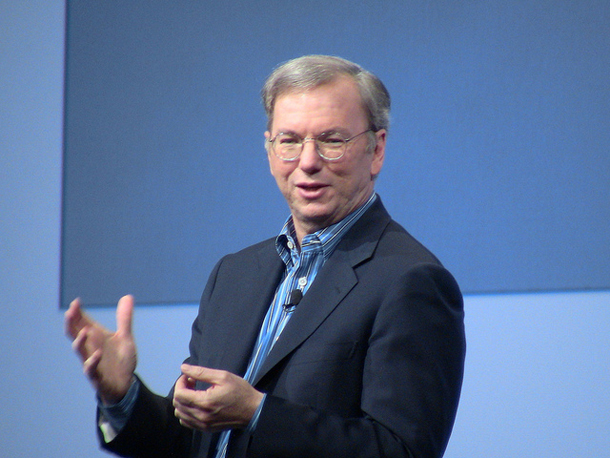Android, Chrome OS to converge, says Google's Eric Schmidt

Separate Google OSes to make one ultimate mobile ice-cream sandwich?
Google chairman Eric Schmidt has revealed convergence lies at the heart of Google's mobile OS road map, saying Android and Chrome will eventually merge into one operating system.
While Google Android is mostly aimed at touch-based mobile devices, the forthcoming Chrome OS is "largely" designed for devices with keyboards - netbooks and PCs - according to Schmidt. But ultimately, he said the two efforts will converge.
Asked by delegates at the Mobile World Congress trade show in Barcelona on Tuesday to explain the different flavours of mobile operating system powering Google's mobile strategy to date, he revealed plans to bring Google's Chrome OS effort and its Android mobile operating system together.

Google chairman Eric Schmidt told the Mobile World Congress that Google Chrome and Android will be brought together
Photo: Jolie O'Dell
"We're working overtime to get those technologies merged in the right way," he said. "I learned a long time ago, don't force technology to merge when it's not ready, wait for the technology to mature to the point when it can be merged."
Convergence is also on the cards for the two most recent branches of Google's Android OS: Gingerbread, its latest mobile OS flavour, and Honeycomb, a new version of Android designed with tablet devices squarely in mind.
The next iteration of Android "will combine the capabilities of the [Gingerbread] and [Honeycomb] releases", according to Schmidt. It will also follow Google's alphabetical naming convention - meaning it will start with the letter I.
"You can imagine that the follow-on will start with an I and will be named after a dessert and it will combine the capabilities of both the G and the H releases," Schmidt told delegates, adding: "These releases occur on a roughly six-month cycle."
Asked about the problem of fragmentation on Google's Android platform, Schmidt played down the significance of having multiple flavours of the mobile OS existing in the wild simultaneously.
"We hear some of this," he said. "Under the terms of our licences, we have an anti-fragmentation clause for all the vendors who are precisely required to track a set of APIs.
"The real way that this is kept together is because of the importance of the app store. No operator will want to be in the Android ecosystem without getting the benefit of all those applications, so conformity to those apps, which is what you get with the basic Android releases, I think will serve as the appropriate carrot and stick to get that relevant - forcing everybody to lockstep along the platform."
"In our case, we've released Gingerbread, which everyone is upgrading to. That upgrade takes a month or two. In fact then everybody will be on a common platform, which should address a lot of your concerns," he added.